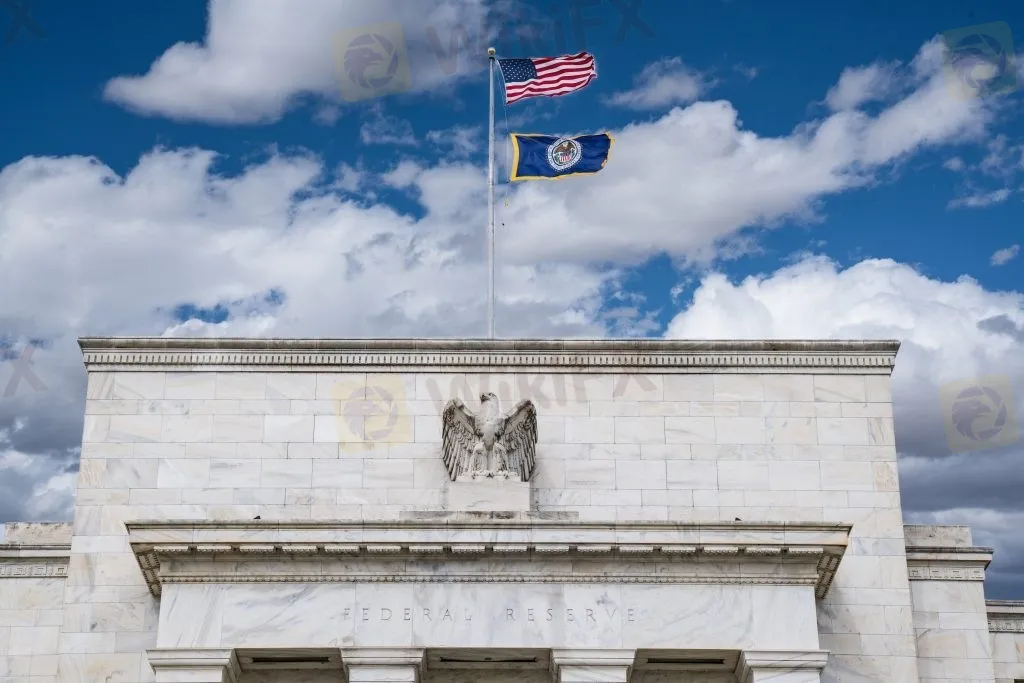简体中文
繁體中文
English
Pусский
日本語
ภาษาไทย
Tiếng Việt
Bahasa Indonesia
Español
हिन्दी
Filippiiniläinen
Français
Deutsch
Português
Türkçe
한국어
العربية
The Interest Rate Dilemma: A Week of Reckoning for Central Banks
Abstract:This attention of investors for this week attention is fixated on the actions of central banks, particularly the Federal Reserve and the European Central Bank (ECB).

This attention of investors for this week attention is fixated on the actions of central banks, particularly the Federal Reserve and the European Central Bank (ECB). The backdrop to this anticipation has been set by the unexpected rate hikes from the Reserve Bank of Australia and the Bank of Canada, which occurred last week. These moves, contrary to the prevailing consensus, have not only sent ripples through the financial markets but also reshaped the discourse around the durability of current interest rates. The financial community is now confronting the stark realisation that the much-anticipated rate cuts may not materialise this year and possibly might not surface until well into the next year.
One of the primary hurdles confronting central banks globally is the persistent challenge of core inflation that remains resistant to control. This unyielding predicament has been aggravated by the unexpected rate increases observed last week. Consequently, there is a growing belief that the previously anticipated “pause” by the Federal Reserve in rate alterations may no longer be a certainty. As of the composition of this writing, the likelihood of a 25 bps increase stands marginally below 30%.
With the ECB seemingly on the brink of a 25 basis point rate increase this week, a move expected to be mirrored by the Swiss National Bank and the Bank of England in the following week, the Federal Reserves stance might increasingly appear as an outlier. This divergence becomes even more pronounced in light of the recent indications of Fed policymakers. Before entering their media blackout period, these policymakers hinted strongly at a potential hiatus in rate adjustments in June, coupled with the possibility of another hike in July.
Nevertheless, the landscape of global finance is constantly shifting, and recent developments have further muddied the waters. OPEC+, a group of major oil-producing countries, has announced another round of production cuts. Meanwhile, the prospect of higher agricultural commodity prices looms on the horizon, spurred by the sabotage of a Ukrainian dam, which resulted in widespread flooding of farmland.
Inflationary pressures remain a pervasive challenge, with inflation rates stubbornly exceeding the target rate for all central banks. This raises a critical question: in the face of these pressures, can the U.S. Federal Reserve realistically affords to hit the pause button? Or, given the deflationary pressures emanating from China, is their cautious approach actually a prudent strategy?
Economic growth is already showing signs of deceleration in China in the post-pandemic era. Europe, Germany, and the EU are confronting a technical recession, with the UK possibly on a similar trajectory. Demand for oil and gas is also slowing, adding another layer of complexity to the situation. The decisions made by central banks this week could play a pivotal role in determining their future course of action. These decisions will indicate how much further central banks are willing to push before offering any insights into when they expect to halt the cycle of rate hikes.
The trajectory of inflation, the longevity of current interest rates, and the sustainability of economic growth across the globe are all hanging in the balance and the decision which these central banks will take will most likely give direction to the markets.

Disclaimer:
The views in this article only represent the author's personal views, and do not constitute investment advice on this platform. This platform does not guarantee the accuracy, completeness and timeliness of the information in the article, and will not be liable for any loss caused by the use of or reliance on the information in the article.
Read more

Naira Falls Against Dollar as Nigeria Reshapes Economic Blueprint
As Nigeria's foreign exchange reserves gradually decrease, the value of the Naira in the foreign exchange market continues to decline, and the exchange rate of the Naira against the US dollar has been consistently dropping, becoming one of the major challenges facing Nigeria's economy.

Why Germany’s Economy and Stock Market Tell Two Different Stories
Germany's economic growth has continued to be sluggish, yet its stock market has remained exceptionally strong, sparking widespread attention. Why do we see a coexistence of economic stagnation and stock market prosperity? In this article, we will delve into the reasons behind this phenomenon and possible strategies for addressing it.

Which Zodiac Sign Makes the Best Trader?
It’s often said that when money is at stake, the true nature of human character—both its brilliance and darkness—is revealed. Trading is one such arena where greed, hesitation, courage, and decisiveness come into play. Successful trading requires more than fundamental and technical analysis skills; a deep understanding of one’s personality is equally crucial. Different zodiac signs exhibit unique personality traits—can these traits influence investment returns? Keep reading to find out which zodiac sign makes the best trader!

Taxes – The Silent Battlefield
Nigeria's tax reform, particularly the new tax plans proposed by President Bola Ahmed Tinubu's government, has become a national focal point.
WikiFX Broker
Latest News
IG Japan Extends US Stock CFD Trading Hours in 2025
ALERT! Warning against Livaxxen
Which Zodiac Sign Makes the Best Trader?
Plus500 Collaborates with Topstep, Prop firm
Robinhood Launches Crypto Trading Services in Spain
Archax Secures FCA Approval to Oversee Crypto Promotions in the UK
CLS Global Admits to Crypto Fraud
Philippine SEC Urges Caution Regarding Ecomamoni
Become Women Brand Ambassador of Yamarkets
Naira Falls Against Dollar as Nigeria Reshapes Economic Blueprint
Currency Calculator



